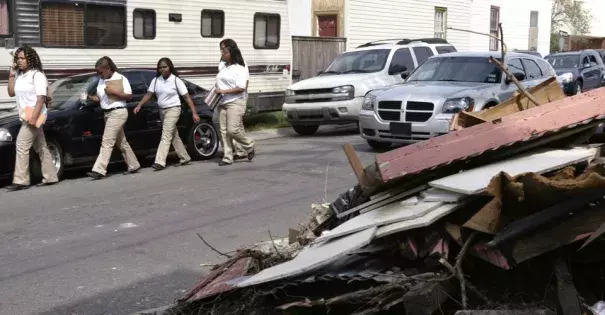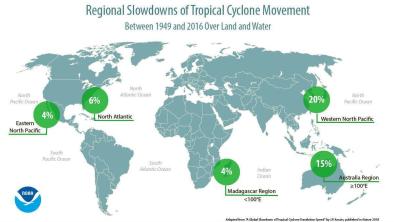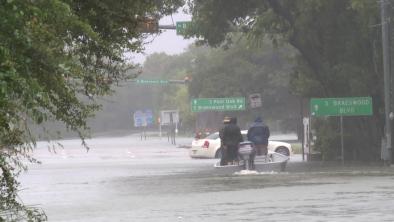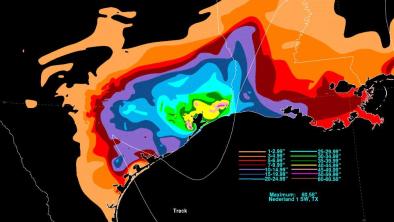How Hurricane Harvey Will Affect Schoolchildren

As floodwaters from tropical storm Harvey continue to rise in the nation’s fourth most-populous city, well over 100 districts across southeastern Texas remain shuttered during what for some would have been the opening days of the academic year. The closures affect hundreds of thousands of students.
...
According to experts, the chaos and emotional upheaval brought on by extreme events can have an especially negative impact on children. Tropical storm Harvey has put students in its path at a greater risk for symptoms of anxiety and depression than they’d otherwise be—not to mention illness and injury. And because schools are closed, some children aren’t getting the nutrition they need—the vast majority of students in Houston Independent School District, for example, receive free or subsidized meals, and the district offers free lunches to all students regardless of income at most of its schools. The closures also threaten to exacerbate “summer slide”—kids’ tendency to lose some of the academic gains they’d made the previous school year—and to reduce the amount of time children can dedicate to learning during the new school year. In short, when weather causes unexpected closures (which inevitably happens more often in some districts than others), children’s lives can become crippled by the chaos.
Such inconsistency can have lasting effects. Researchers found that some children became more aggressive after experiencing Hurricane Katrina, which severely damaged 110 of the city’s 126 public schools and resulted in the complete reorganization of New Orleans’s education system.
...
Joy Osofsky, a professor of pediatrics and psychiatry at Louisiana State University, was involved in providing trauma and mental-health support to schools in the wake of Katrina. The severity of the disaster’s impact on individual children, she said, was directly correlated with the stability of their broader environment. For instance, children who may have had a close relative relocate following the storm, or whose families experienced outsized economic strain, were likely to show greater signs of stress than those who had more stability. In the midst of such upheaval, Osofsky said, schools had the opportunity to be a source of stability.
...
Researchers are seeking to better understand the impact natural disasters have on kids and their educational outcomes in large part because it’s a reality with which growing number of children are having to cope: Three times as many natural disasters occurred from 2000 to 2009 than from 1980 to 1989, with scientists attributing 80 percent of the increase to climate (rather than geophysical) change.
Related Content





